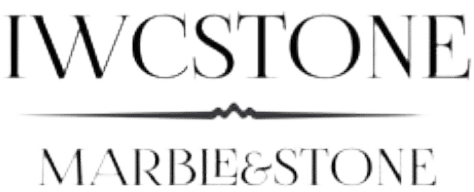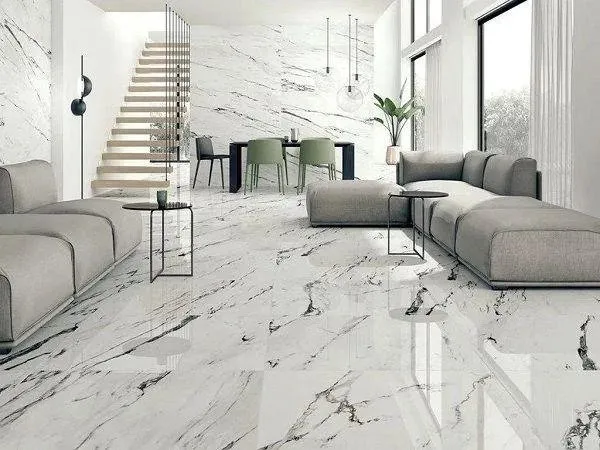
Marble flooring is a symbol of luxury and timeless beauty. It’s a popular choice for homeowners and commercial establishments who want to create an elegant and sophisticated atmosphere. However, like any material, marble has both advantages and disadvantages. Understanding the various characteristics of marble stone can help you decide if it’s the right fit for your space. In this article, we’ll explore the pros and cons of marble flooring, its maintenance needs, costs, and why it might be a great choice for your home or business. We’ll also introduce IWC Stone, a trusted provider of quality marble flooring products.
Marble is a natural stone that has been used in architecture and design for centuries, prized for its unique veining patterns and luxurious appearance. It’s a metamorphic rock primarily composed of calcium carbonate, formed when limestone is subjected to heat and pressure deep within the Earth. The beauty of marble comes from its one-of-a-kind texture and the wide variety of colors and patterns available. From classic whites to rich, earthy tones, each piece of marble flooring is distinct.
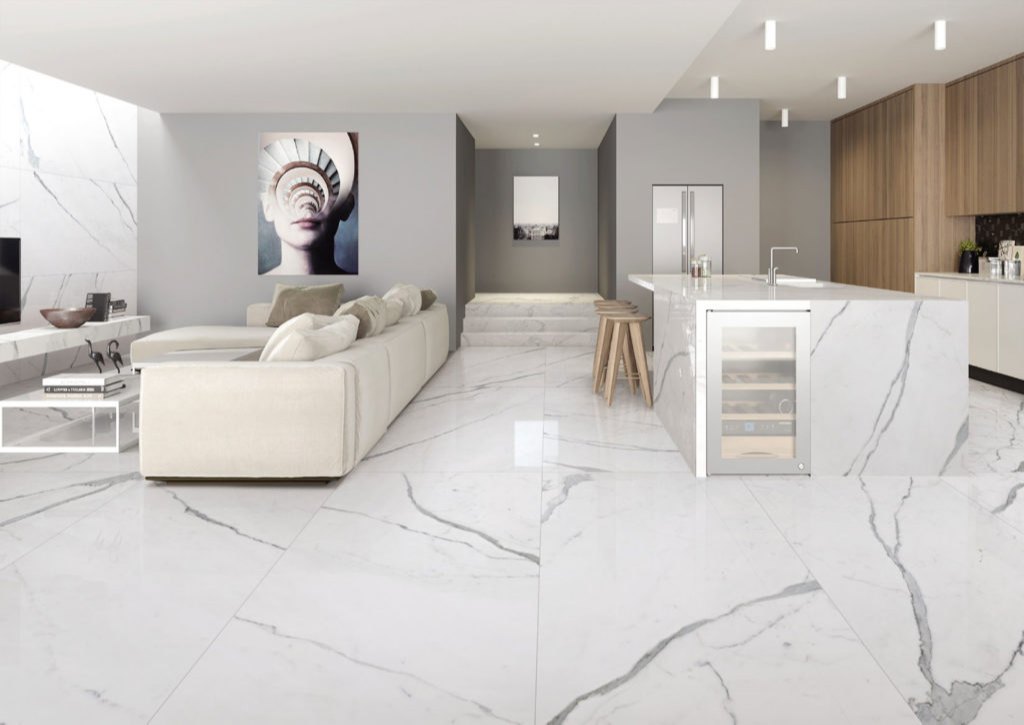
Marble is synonymous with elegance and sophistication. It adds a level of refinement to any space, from kitchens to bathrooms, living rooms to lobbies. The natural patterns of veining, which can range from subtle to bold, create a luxurious visual texture that no other flooring material can replicate.
In addition to its appearance, marble floors adapt well to different interior designs. Whether you prefer a modern, minimalist look or a more traditional setting, marble can complement a wide range of styles. Its versatility is another reason why it’s chosen for various types of buildings, from homes to commercial spaces.
One of the main reasons people choose marble flooring is its durability. When properly installed and maintained, marble floors can last for decades. They are resilient against wear and tear, and with their natural stone composition, they often improve in appearance over time. Marble is a heavy material, and its robustness makes it suitable for high-traffic areas when properly cared for.
Marble naturally has antibacterial properties, which makes it a safe and hygienic choice for areas like kitchens and bathrooms. It also resists mold growth, contributing to a healthier living environment. Marble’s non-porous surface repels germs and bacteria, a key feature for homeowners concerned with indoor air quality and cleanliness. This makes marble an excellent option for high-humidity areas where moisture can be a problem Rubi Blog.
As a natural stone, marble is an environmentally friendly flooring option. It doesn’t require chemical processing in its production, unlike some other materials that need synthetic treatments. Marble is biodegradable and can be repurposed if it needs to be replaced, contributing to sustainability efforts. Choosing marble for your flooring can reduce your ecological footprint, making it an appealing option for eco-conscious consumers.
The addition of marble flooring can significantly increase the resale value of your home. Its luxurious and timeless appeal is highly regarded in the real estate market. High-end buyers often associate marble with quality and craftsmanship, making it a sought-after feature in both residential and commercial properties. The elegance and beauty of marble floors can elevate your home’s value, particularly if it’s installed in high-traffic areas like the foyer or living room.
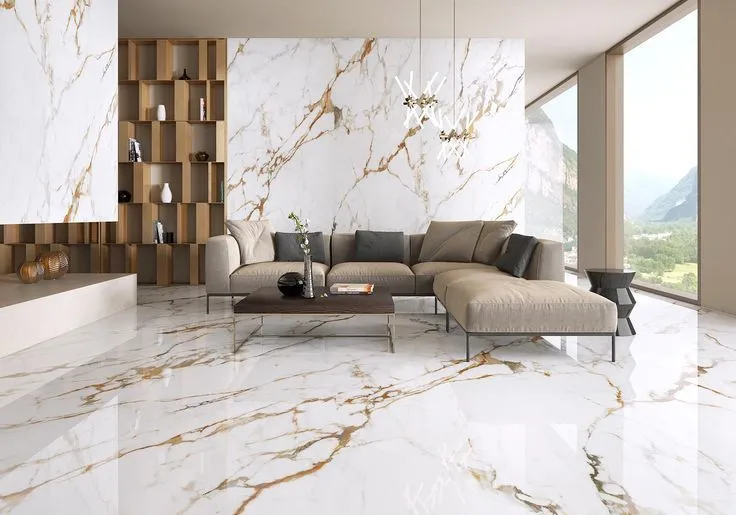
While marble offers many advantages, it also has some downsides that homeowners should be aware of before making a decision.
Marble is a relatively soft stone, meaning it can scratch and chip more easily than harder materials like granite. While its durability is impressive, heavy objects or sharp items can damage the surface. Additionally, marble is porous and susceptible to staining from liquids such as wine, coffee, or acidic substances like vinegar. Without proper sealing, liquids can seep into the stone and leave permanent marks.
Marble floors also need to be sealed regularly to protect them from damage. Without this protective layer, the stone can become discolored and worn, especially in high-traffic areas.
Marble flooring is generally more expensive than other options, such as ceramic or porcelain tiles. The material cost can range from 10to10to40 per square foot, depending on factors like type, color, and veining patterns. In addition to the material cost, professional installation is recommended, which can add 3to3to7 per square foot to the overall expense. This makes marble a high-end flooring option, with a price tag that might not fit into every budget
Marble requires regular maintenance to maintain its appearance and functionality. The stone should be resealed every 12 months to prevent staining and damage. Routine cleaning involves sweeping and mopping, but it’s important to avoid using acidic cleaning products, as they can cause the surface to erode or discolor.
In addition, polished marble floors can be slippery, especially when wet, posing a safety risk in areas like bathrooms or kitchens. While this can be mitigated with a textured finish or anti-slip coatings, it remains a concern in households with children or elderly members.
While marble floors are known for their aesthetic beauty, they can also be quite cold underfoot. This can be a disadvantage, particularly in colder climates. However, this issue can be addressed by installing radiant floor heating beneath the marble, which will keep the floor warm and comfortable throughout the year.
Marble is a heavy and brittle material, making it more difficult to install than other flooring options. Professional installation is highly recommended to ensure the stone is laid correctly, which may add to the overall cost. The subfloor also needs to be properly prepared to support the weight of the marble tiles, which can require additional work.
When compared to other common flooring materials, marble stands out in terms of aesthetic appeal but comes at a premium price. For instance, porcelain tiles can mimic the look of marble at a fraction of the cost but lack the natural variations and unique beauty that real marble provides. While marble offers a higher-end appearance, porcelain is generally more durable and easier to maintain.
Similarly, marble’s cost and upkeep requirements are often higher than other stone flooring materials, such as granite or limestone. Granite, for example, is harder and more resistant to scratching and staining, making it a better option for high-traffic areas. However, it doesn’t have the same luxurious visual appeal that marble offers.
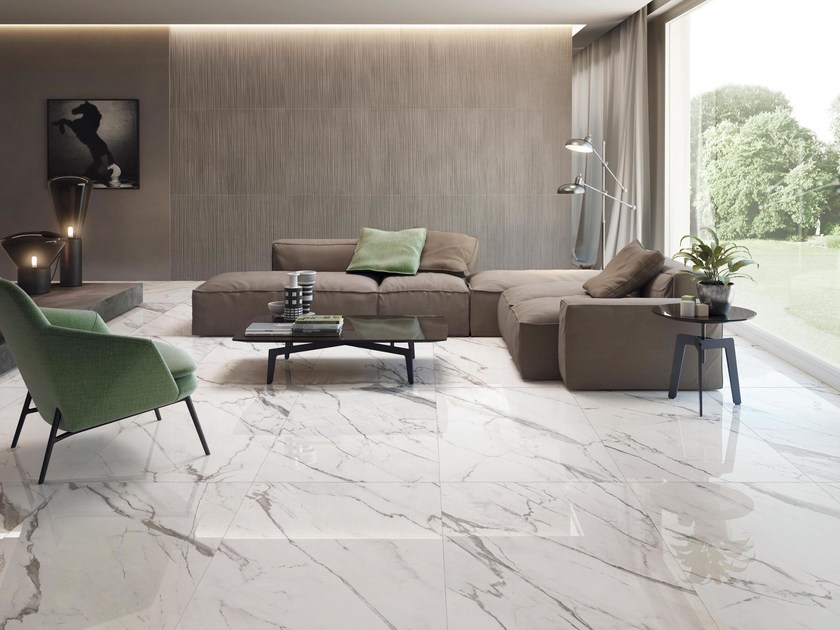
In conclusion, whether marble is the right flooring option for your space depends on your priorities. If you value beauty, luxury, and timeless elegance, and are willing to invest in proper maintenance, marble could be the perfect choice. It’s especially suited for spaces like entryways, living rooms, bathrooms, and kitchens where its visual appeal can truly shine.
At IWC Stone, we offer a wide range of high-quality marble flooring options to help you enhance your living space. Whether you’re remodeling your home or designing a new one, our collection is sure to provide the perfect marble solution. Visit our website to explore our products and learn more about how marble can transform your space.
IWC Stone offers a stunning selection of marble options, ideal for both modern and timeless designs. Our Pietra Grey Marble is known for its luxurious dark tones and elegant veining, making it a perfect choice for high-end interiors such as countertops, wall cladding, and flooring. It adds a sophisticated, contemporary touch to any space.
For a classic, fresh aesthetic, Bianco Crystal Marble delivers a clean, bright appearance with subtle veins, making it a versatile option for a wide range of applications. Its timeless beauty enhances light and space, making it a perfect choice for both residential and commercial projects.
At IWC Stone, we are committed to offering stones of exceptional quality, ensuring that each project has the perfect marble solution to meet both aesthetic and functional needs.
High quality in processing
The best prices
Shipping nationwide
24 hour support
It is our mission to produce and provide building stone with the best quality and competitive price in the country.
